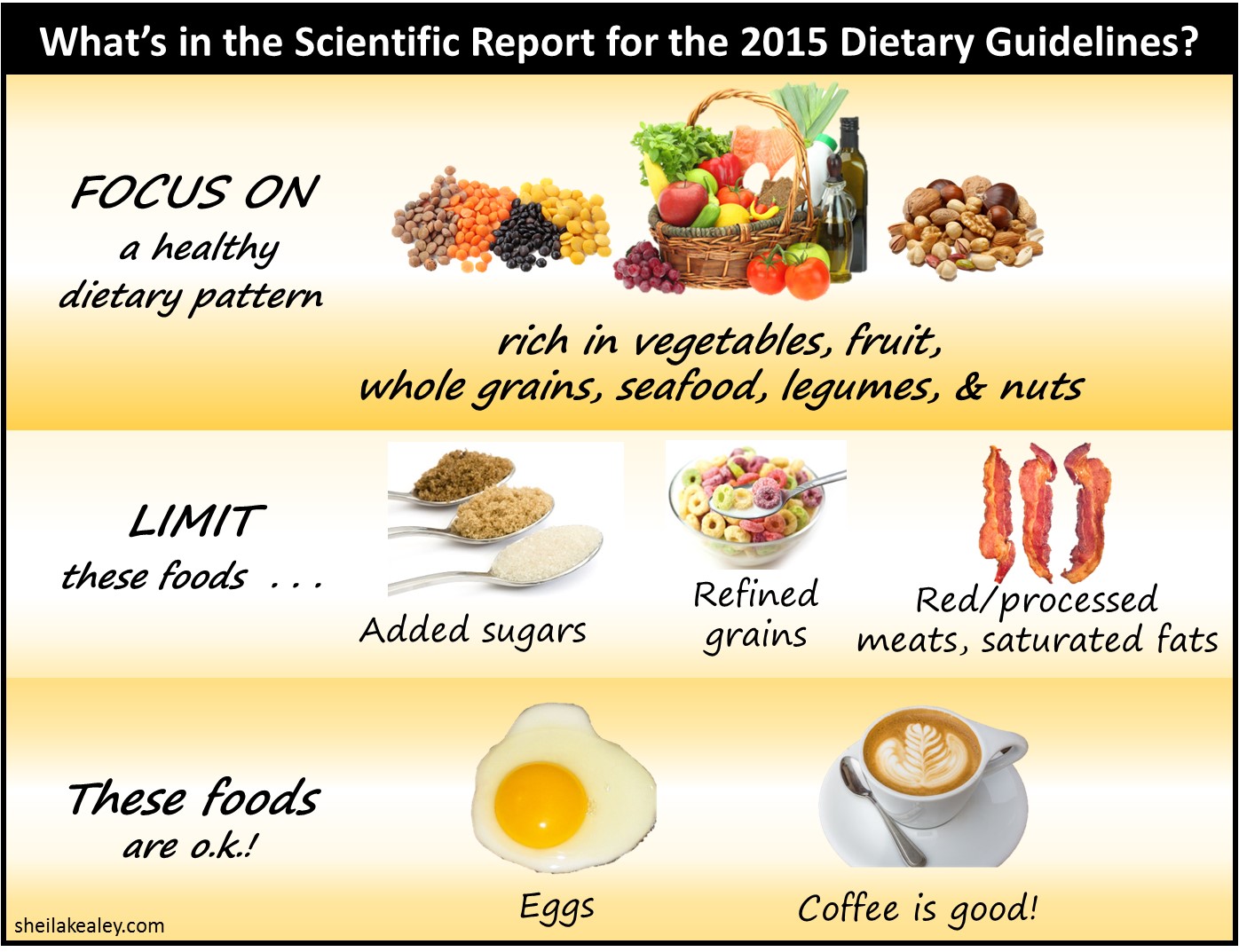This week, read about BJM’s attack on the US Dietary Guidelines, self-talk for runners, a sneaky experiment about calorie counts, altitude training, respect for sports psychology, carrot wars, time-restricted eating, the Banting diet, and how you can learn anything.
Attack on US Dietary Guidelines
Many health experts were shocked this week when the British Medical Journal published an article by a clearly biased journalist. Nina Teicholz, author of the book Big Fat Surprise, criticized the 2015 US Dietary Guidelines Advisory Committee Report (ironically for its lack of good science). True experts in the field of nutrition and health are responsible for crafting the US Dietary guidelines. I wrote about the guidelines and earlier criticism here. It is puzzling many why a journal would publish such an article, but they are certainly getting a lot of press for their actions . . .
I think the best part of the new guidelines is an emphasis on dietary patterns, rather than nutrients or specific foods. Although much of nutrition research focuses on investigating the influence of intakes of specific nutrients or foods on health, at the end of the day, it’s our overall diet that counts. Also, this emphasis reflects a growing appreciation of the complex interaction among nutrients and other food components. And here’s a quick graphic I put together to summarize the current guidelines.
Teicholz promotes a high fat/low carbohydrate diet in her book, and she calls any contrary advice bad science. For a run down on the “science” and writing in Teicholz’s book, have a look at the following: THE BIG FAT SURPRISE: A CRITICAL REVIEW Part 1; Part 2.
Here are some excellent rebuttals to Teicholz’s BMJ piece:
- Medical journal’s bogus investigation could derail better dietary guidelines
The BMJ published an article that makes erroneous statements (Arielle Duhaime-Ross, the Verge) - BMJ Publishes Error-Laden Attack on Dietary Guidelines Report (CSPI)
- An Open Letter to the BMJ Regarding US Dietary Guidance. (David Katz)
- Expert is as expert does: in defence of US dietary guidelines (Tim Crowe and Rosemary Stanton)
- Misleading Journal Article Attacks US Dietary Guidelines Report, Earns Swift Rebuttal (AICR)
- Nina Teicholz Reports in the British Medical Journal ~ The Conflicts & Funding. (Carbsane)
- Re: The scientific report guiding the US dietary guidelines: is it scientific? (Dietary Guidelines Committee Response)
More Headlines of Interest This Week:
Self-Talk for Ultramarathoners. Alex Hutchinson reports on an ongoing study suggesting potential benefits of self-talk for ultramarathon performance. (Alex Hutchinson, Runner’s World).
A sneaky experiment about calorie counts. A new study looks into the best way to convey calorie counts to help weight control. Numbers or traffic lights? (Journal of Public Policy and Marketing, September 2015).
Altitude Training. A few articles this week may be of interest to athletes and coaches who are training or racing at altitude.
- Altitude training and performance. This is an excellent presentation of the latest research on altitude training & performance by exercise physiologist Yann Le Meur.
- Iron Levels and Altitude. Alex Hutchinson looks at a study that recommends that athletes with low ferritin levels take supplements while training at altitude.
The Myth That Links Poor Families to Fast Food. A new study by scientists at the Centers for Disease Control debunks the misconception that low-income Americans are the biggest consumers of quick-chain fare. It seems the wealthiest Americans are the most likely to eat fast food. (The Atlantic, reporting on NCHS data brief, September, 2015)
Sport Psychology Still Doesn’t Get the Respect It Deserves. Don’t underestimate the role of mental preparation for athlete development. Sports psychologist Jim Taylor makes a compelling case for why mental training should be treated the same as physical and technical training in sports.
The carrot war gets serious. The frozen and canned food lobbies want a place in the school lunch program. (Politico)
 Novel research method to study eating habits and time restricted eating. An emerging field of research is looking into how the timing of meals in relation to our circadian rhythms (which influence biological processes and metabolism) affects health. Researchers from the Salk Institute are investigating what they call “metabolic jet lag,” a name they use to describe when circadian rhythms become distorted due to irregular eating times.
Novel research method to study eating habits and time restricted eating. An emerging field of research is looking into how the timing of meals in relation to our circadian rhythms (which influence biological processes and metabolism) affects health. Researchers from the Salk Institute are investigating what they call “metabolic jet lag,” a name they use to describe when circadian rhythms become distorted due to irregular eating times.
Early findings in animals and preliminary small studies in humans suggest it might be better for health to restrict our feeding period. The Salk investigators developed an app to get a snapshot of timing of eating patterns, and used the app to help study participants limit their feeding to a 10-11 hour period. After 16 weeks, participants with a restricted feeding window lost weight and reported better sleep and energy levels. You can download the smartphone app (and contribute your data to their research) here. (Cell Metabolism, September, 2015).
Stay Fast As You Age. Amby Burfoot looks at recent research showing that lower-leg strength training is important to maintaining running speed over time. (Runner’s World).
Banting or Ranting? Many hold sports physiologist Tim Noakes in high esteem after reading his popular books (e.g. Lore of Running). But he is losing respect among scientists. Here’s a look at the claims of Tim Noake’s Banting diet, that limits carbohydrates to about 50g/day (that’s about the carb content of one apple . . .). (Daily Maverick).
More bad science from Noakes . . . recently he seems to be in the anti-establishment/conspiracy theorist camp, disregarding science (that doesn’t support his opinions), promoting his high-fat low-carb diet as evidence-based, and stating that a proven link between vaccines and autism have been covered up.
Sitting Is Bad for Children, Too. A lot of research shows that sitting too much is bad for the health of adults, and a new study by researchers at UBC Kelowna show it’s a concern for children too. Looking at 9- to 12-year-old girls, they found that prolonged sitting was bad for vascular function. The study authors recommend regular exercise breaks to offset the detrimental effects of uninterrupted sitting in young girls. (Gretchen Reynolds, New York Times, reporting on Exp Physiol, Sep 2015).
You Can Learn Anything
A great reminder from Kahn Academy.
Share This:
